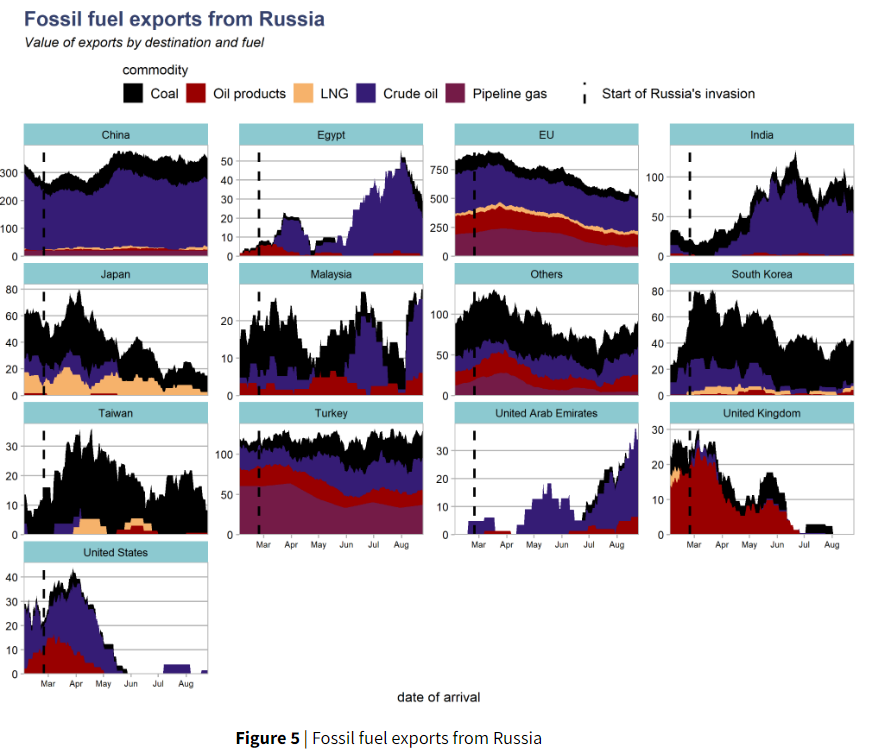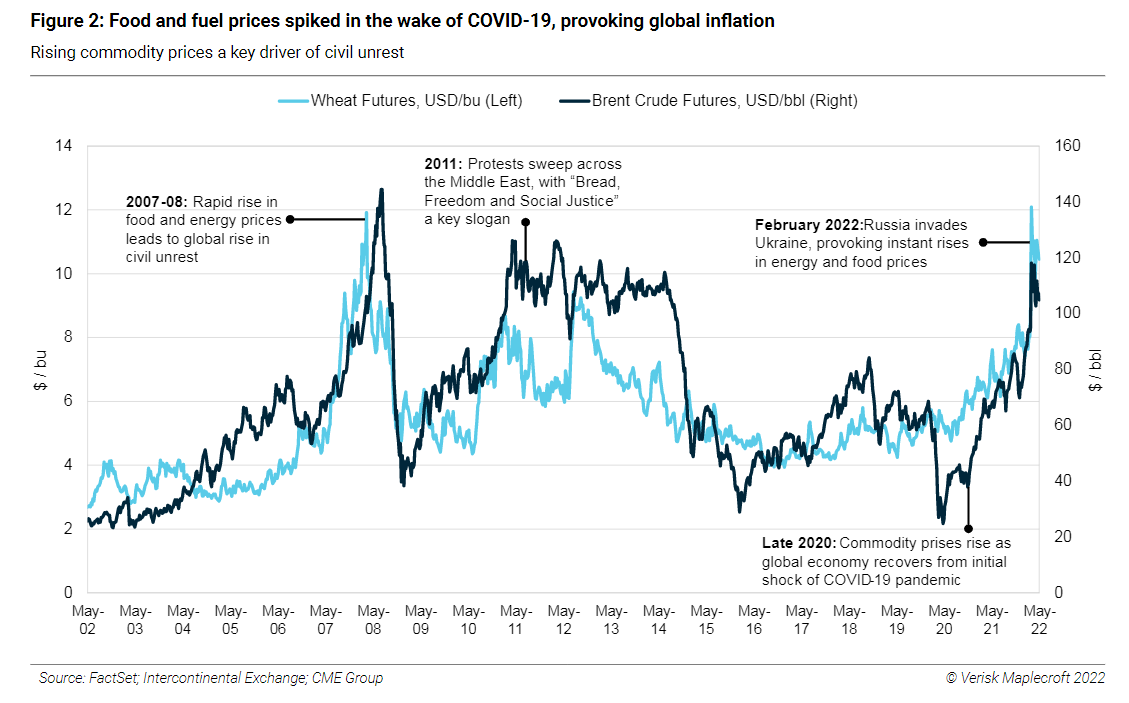Energy Security Comes First
Achieving other policy goals depends upon securing supply and costs
Imagine the following situation. You have a loved one who has a deadly disease. They are going to die quickly unless they get the proper medicine. You locate someone who is selling the medicine - Thank goodness! But it turns out the person selling the medicine is an absolutely evil, awful person.
To make matters more complicated some in your family are telling you to buy the medicine. Others in your family are telling you not to give money to an evil person, promising that there is even better medicine coming soon.
What do you do? Do you buy the medicine even though it is from the awful person?
This is not just a hypothetical. In the above example, substitute “energy security” for the sick loved one, fossil fuels for “medicine” and Russia for the “evil, awful person.” Now have a look at the following interview of India’s petroleum minister, Hardeep Singh Puri, at CNBC International a few days ago (jump to 1:40 for the key comments that I excerpt below):

When asked about India’s imports of Russian oil, Puri replied:
Someone said, ’India is buying a lot of Russian oil.” I said, ”The Europeans buy more in one afternoon than I buy in a quarter” . . . But yes we will buy from Russia, we will buy from wherever . . .
The interviewer interrupted to ask whether India had a “moral conflict with the Russians,” to which Puri replied:
No, no, there is no conflict. I have a moral duty to my consumer. Do I as a democratically-elected government want a situation where the petrol runs dry? Look at what is happening in countries around India.
The interviewer notes that Russia did “invade a democratically-elected country.” Again Puri pushes back,
I’m not getting into that debate. It is a question of energy. Energy as far as I know is not sanctioned. . . There are so many other factors. We are balancing. We are buying 4 million [barrels] from here, we are buying I don’t know how much from Russia. We are realistic, and by the way, those who want to do that ideological punitive action? They’re still buying.
Puri is correct that others are still buying fossil fuels from Russia. According to a new report from the Center for Research on Energy and Clean Air, fossil fuels from Russia continue to be imported by many countries around the world, as shown in the figure below (take note of the varying y-axis scales).
According to CREA:
Russia earned EUR 158 billion in revenue from fossil fuel exports in the first six months of the war (February 24 to August 24). The EU imported 54% of this, worth approximately EUR 85 billion.
Fossil fuel exports have contributed approximately EUR 43 billion to Russia’s federal budget since the start of the invasion, helping fund war crimes in Ukraine.
The largest fossil fuel importer was the EU (EUR 85.1bln), followed by China (EUR34.9bln), Turkey (EUR10.7bln), India (EUR6.6bln), Japan (EUR2.5bln), Egypt (EUR2.3bln, and South Korea (EUR2bln).
Surging fossil fuel prices mean that Russia’s current revenue is far above previous years’ level, despite the reductions in this year’s export volumes.
Surging energy prices that have benefited Russian coffers are, ironically, a consequence of the war.
Higher energy prices can lead to civil unrest — the avoidance of which is one reason why countries keep buying fossil fuels from Russia. As Puri intimated, when petrol stations run dry or if costs get too high, people will respond.
According to Verisk Maplecroft, a consultancy that tracks geopolitical risks, last quarter civil unrest increased in 101 of the 198 countries that it tracks around the world in part due to higher-priced energy. They foresee the recent unrest as just the beginning, “As the conditions for civil unrest build in a growing number of countries, the severity and frequency of protests and labour activism is set to accelerate further over the coming months.”
They conclude that to address the growing risks of civil unrest, “Only a significant reduction in global food and energy prices can arrest the negative global trend in civil unrest risk.” Rising energy and food prices are tightly linked, as you can see in their figure below.
It is no surprise that many countries have abandoned appeals to “ideological” (to borrow from Minister Puni) energy policies and instead adopted hard-headed pragmatism and realpolitik focused on securing supply and containing prices. Consider:
Japan is taking significant steps to restart its nuclear power plants and invest in the development and deployment of advanced nuclear technologies;
India is deploying a wide range of energy technologies, including consideration of building 28GW of capacity in new coal plants;
Countries in Southeast Asia are looking to increasing their import capacity of liquified natural gas by more than 2.5x;
Germany’s decision to stick with some aspects of “ideological” energy policy (against nuclear) has resulted in opposition from other European countries;
The United States has focused policy on lower the prices of gasoline, touting the reduction as political success.
All of these actions related to energy indicate what should be completely uncontroversial — energy security comes first. And by security I mean security of supply and of cost. Externalities such as air pollution (both particulates and greenhouse gases), dodgy regimes as a source of supply and fears over technological risks can only be addressed in the context of security.
But for many people — including some experts — energy policy is not about the technological, economic and societal challenge of delivering secure, modern energy services to everyone around the world. It is a big political game where technologies take on virtues — such as: nuclear BAD, renewables GOOD, that is, unless you are on the other team where it is — nuclear GOOD, renewables BAD. Inevitably, those who play this game already enjoy secure energy supply and can afford its costs.
But not everyone has these privileges. Expressing virtue through energy technologies will always be much easier when there are multiple viable options on the shelf (so to speak) and ready to be deployed. In the absence of clear alternatives, or in the presence of promises of new alternatives soon to come, countries will overwhelmingly choose what is familiar or immediately deployable. There won’t be much interest in political games through energy policies.
The bottom line here is that to achieve outcomes other than reliance on fossil fuels from Russia (or reliance on fossil fuels at all) we need to expand the scope of real-world energy technology options, at scale and ready to implement. As we work to expand that scope we must keep front and center the fact that security comes first, everything else follows.
Paying subscribers to The Honest Broker receive subscriber-only posts, regular pointers to recommended readings, occasional direct emails with PDFs of my books and paywalled writings and the opportunity to participate in conversations on the site. All paid subscribers get a free copy of my book, Disasters and Climate Change at this link. I am also looking for additional ways to add value to those who see fit to support my work.
There are three paid subscription models:
1. The annual subscription: $80 annually
2. The standard monthly subscription: $8 monthly - which gives you a bit more flexibility.
3. Founders club: $500 annually, or another amount at your discretion - for those who have the ability or interest to support my work at a higher level.







Excellent article and a great explanation of why a target of Net Zero is wrong. I am changing my subscription to Founder.
I agree. All one has to do is read the book, The Prize, by Daniel Yergin, to understand the national security risks associated with energy and fossil fuels. Heck, battles were won and lost during WWII just on this issue alone.